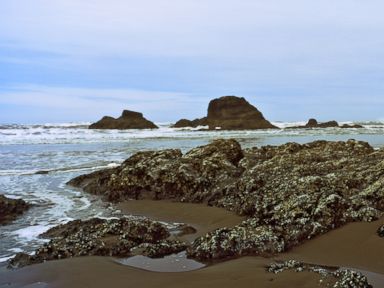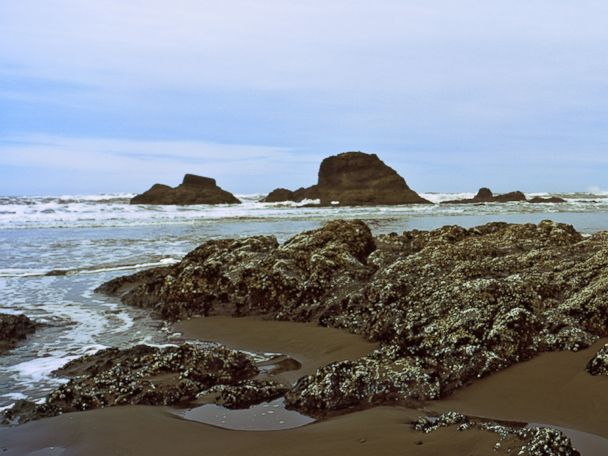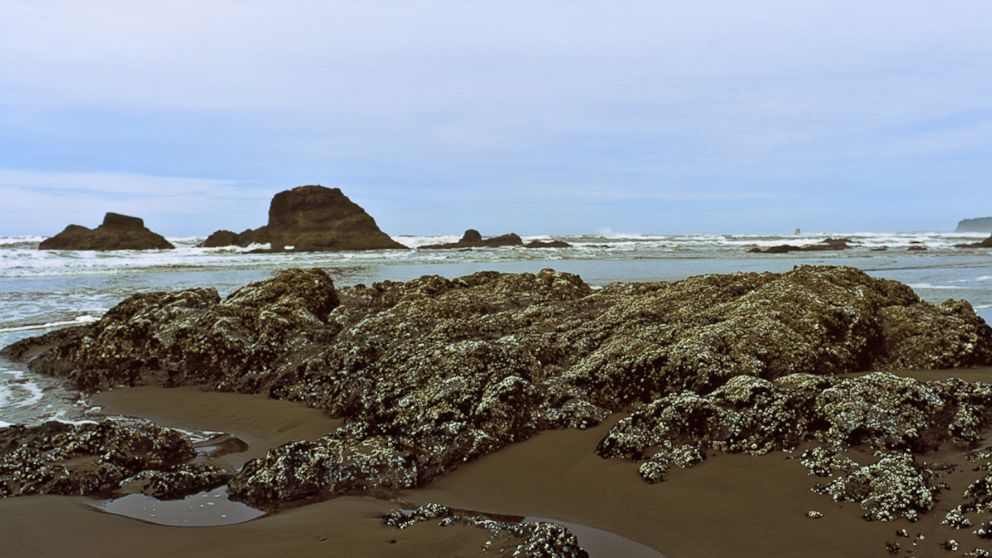






Two Washington state women who were separately clam digging with their husbands Friday night went missing “four minutes” apart — and eerily drowned in the same waters, authorities said.
Each woman had completed digging for razor clams and vanished while attempting to return to their vehicles. Both women washed ashore the following day.
Authorities said Gerilynn Reinke, 70, and Sharon Leseman, 61, each mysteriously got swept up by the rough surf about 9 p.m. Though autopsies are pending in both deaths, authorities believe both women drowned.
Pat Matlock, the chief criminal deputy at the Pacific County Sheriff’s Office, said neither Reinke nor Leseman’s disappearance and subsequent deaths involve foul play.
“It’s a suspected drowning but we don’t know if they had a medical event,” he said. “There’s nothing suspicious or nefarious at all with either of these deaths and no sign of any type of violence.”
A call to the Pacific County Coroner was not immediately returned.
Matlock suggested that the fact that both died only minutes apart and in almost the same fashion is bizarre.
“These are unusual circumstances that they happened at the same time,” he said.
On Friday night, Reinke had been digging for an hour using a metal poled device called a clam gun on the dry sands of Oysterville beach located at Ocean Park along the Long Beach Peninsula.
Reinke, whom friends called Geri, had celebrated her birthday only days before.
A family friend who recently spoke to Reinke’s husband of more than two decades soon after her body washed up said the spouse was “distraught.”
“She was our best friend, had lots of family and a good husband,” the friend said. “She was well-loved.”
The friend, who said she was wearing waiters, warm attire and a snake flashlight around her neck, said Reinke and her husband each reached their 15 clam count limit. Afterward, she gave her inventory to her husband so he could clean off the sand.
Then, as she attempted to return back to her car up the beach in pitch black, misty conditions — Reinke suddenly was gone.
“Her husband walked out to the water to rinse the clams and came back and she wasn’t there,” the friend, who asked not to be identified, said. “He told me there was a big wave.”
The friend added that the husband waited for Reinke to appear and, about 9 p.m., grew impatient and called 911.
“We don’t know if she walked toward the water or had a medical event and fell into the water,” Matlock said. “Nobody saw her because visibility was poor.”
A group of fellow clammers found her body on a beach near Westport in Grays Harbor about 5 p.m. the next day.
It had washed up almost 10 miles north from where she was originally clamming, Matlock said.
Like Reinke, Leseman was clamming with her husband, but she was doing so on the opposite side of the county on Warrenton Cannery Road, Matlock explained.
“It was the same body of water that took these two women, but the land around it differs,” he said.
Leseman gave her lantern to her husband before attempting to return to their truck, guided by her handheld flashlight, Matlock said.
When her husband returned to the truck, Matlock said, “he was thinking his wife was there waiting.”
But Leseman was gone.
The husband initially suspected his wife may have hitched a ride home. But when he made it back to the cabin they shared, his wife was nowhere to be found.
“He drove back to the beach looking for her,” Matlock said, adding the husband called 911 about 90 minutes into searching with no luck.
A search party nor the Coast Guard — in part because of the mist and heavy fog conditions — could find Leseman in the hours that followed. A so-called “beachcomber” scavenging for random items found Leseman’s body about 5:30 the next morning, Matlock said.
Despite the tragic deaths, Matlock said day and night clamming, a century-old pastime in the region, would continue. But he reminded clammers to use good lighting, have an awareness of where you are, and among other safety tips, never turning your back on the surf.
“It’s a reminder to be vigilant of the powerful surf,” he said. “Even the most experienced clammers need to watch what they’re doing,” he said.
